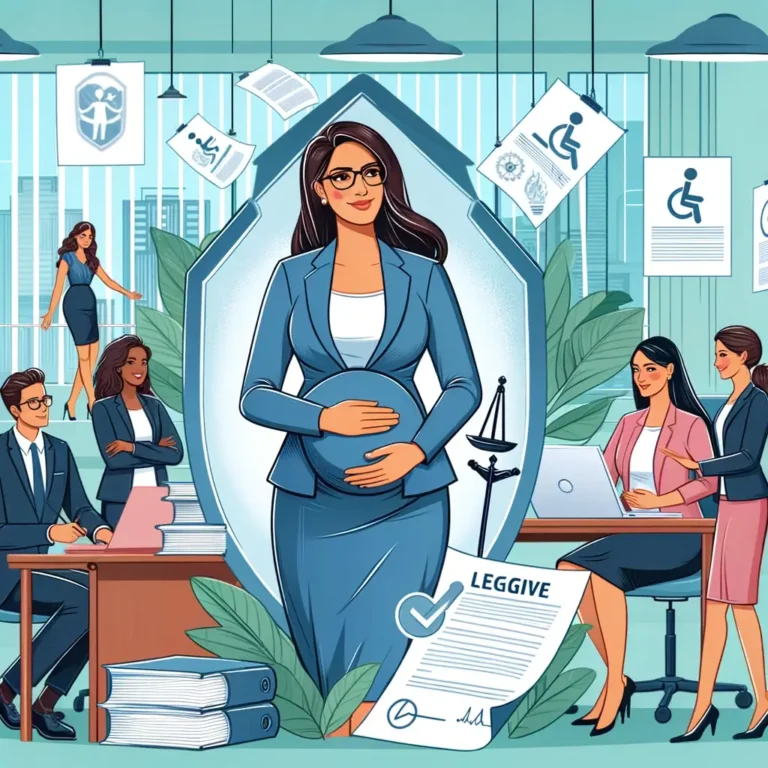In this article we have explained What Women’s need to know about Mutual Divorce:
Introduction to Mutual Divorce
Mutual divorce represents a shared decision between spouses to end their marriage amicably. This process, while less contentious than traditional divorce proceedings, still demands careful consideration, especially for women. Understanding the nuances of mutual divorce helps ensure that women’s rights and interests are adequately protected.
Mutual Divorce: What Women Need to Know
The Importance of Legal Counsel for Mutual Divorce
Even in a mutual divorce, legal advice is crucial. Engaging a lawyer can help women navigate the complexities of divorce laws, which vary significantly across jurisdictions. A legal expert ensures that the agreement is fair and considers future implications, such as alimony, child custody, and asset division.
You can also read :- Do I Need A Lawyer for my Divorce case
Evaluating Financial Implications
A critical aspect of mutual divorce is understanding its financial impact. Women should be well-informed about shared assets, debts, and potential spousal support. It’s essential to evaluate both current and future financial scenarios to ensure financial stability post-divorce.
Key Considerations in Mutual Divorce for Womens
Understanding Your Rights
Awareness of one’s rights is pivotal in a mutual divorce. This includes rights related to property, finances, and children. Women should be fully informed about their legal rights to make educated decisions.
The Role of Mediation
Mediation can play a significant role in facilitating a mutual divorce. It provides a platform for both parties to discuss and resolve issues with the help of a neutral mediator. This approach often leads to more satisfactory outcomes for both spouses.
Child Custody and Co-Parenting
If children are involved, determining custody arrangements is a crucial part of the divorce process. Mutual divorce often allows for more amicable co-parenting arrangements, but it’s vital to formalize these agreements to avoid future conflicts.
Financial Planning and Asset Division
Assessing Joint Assets and Liabilities
A thorough assessment of joint assets and liabilities is necessary. This includes property, investments, and debts. Women should strive for an equitable share, considering both current value and potential future appreciation or depreciation.
Planning for Future Financial Security
Post-divorce financial planning is essential. This might involve revisiting investment strategies, updating wills and beneficiaries, and ensuring adequate insurance coverage. Women should consider both immediate and long-term financial needs.
Understanding Alimony and Child Support
Alimony and child support are critical factors in mutual divorces. Understanding the laws governing these aspects and how they apply to one’s situation is vital for financial planning.
Emotional and Psychological Aspects
Coping with the Emotional Impact
Divorce, even when mutual, can be emotionally taxing. Seeking support from friends, family, or professionals can be beneficial. It’s important to address the psychological impact to move forward positively.
Preparing for Life Post-Divorce
Adapting to life post-divorce involves significant changes. This can include entering the workforce, pursuing education, or developing new social networks. Preparation and planning are key to a successful transition.
The Importance of a Support System
Having a strong support system is invaluable during and after the divorce process. This includes emotional support as well as practical assistance, such as child care or financial advice.
Conclusion: Empowerment Through Information
Empowering women with information and resources is crucial in the context of mutual divorce. Understanding rights, financial implications, and the emotional aspects of divorce allows women to make informed decisions and prepare for a stable and fulfilling future post-divorce.
FAQs: Mutual Divorce: What Women Need to Know
- What is mutual divorce?
- Mutual divorce is a process where both spouses agree to dissolve their marriage amicably and collaboratively, often with less conflict and legal complexity than a contested divorce.
- Do I need a lawyer for a mutual divorce?
- While not always legally required, it’s advisable to consult a lawyer to ensure your rights are protected and the agreement is fair, especially regarding financial and custody matters.
- How long does a mutual divorce take?
- The duration varies by location, but typically, a mutual divorce can take several months to finalize, considering mandatory waiting periods and legal processing times.
- What are the main benefits of mutual divorce?
- Benefits include reduced emotional stress, lower legal costs, faster resolution, and more control over the terms of the divorce, such as asset division and child custody.
- How is property divided in a mutual divorce?
- Property division is based on mutual agreement. Both parties negotiate and agree upon how to divide assets and liabilities fairly, often with legal and financial advice.
- Are women entitled to alimony in a mutual divorce?
- Entitlement to alimony depends on various factors like the length of the marriage, financial status of both parties, and individual circumstances. It should be discussed and agreed upon during the divorce process.
- Can we change our minds after filing for mutual divorce?
- Yes, couples can reconcile and withdraw their petition for mutual divorce at any stage before the final decree is issued.
- How do we handle child custody in a mutual divorce?
- Child custody should be decided mutually, focusing on the best interests of the child. The agreement should cover physical custody, visitation rights, and decision-making authority.
- What happens if we can’t agree on certain terms?
- If disagreements arise, mediation or legal counsel can help. If mutual consensus cannot be reached, the divorce may proceed as a contested case.
- Do we both have to attend court hearings?
- Generally, both parties must be present for certain hearings, but this can vary. Your lawyer can provide specific guidance based on local laws.
- What if my spouse is not cooperating in the mutual divorce process?
- If your spouse becomes uncooperative, you may need to consider switching to a contested divorce proceeding and seek legal advice.
- Can mutual divorce agreements be modified post-divorce?
- Yes, agreements, especially those related to child support and custody, can often be modified post-divorce if circumstances change significantly.
- Is counseling required before a mutual divorce?
- Some jurisdictions require counseling before granting a divorce, while others do not. Check your local divorce laws for specifics.
- What documents are needed for filing a mutual divorce?
- Required documents typically include marriage certificate, identification documents, financial records, property documents, and an agreement on divorce terms.
- How is child support determined in a mutual divorce?
- Child support is usually based on the child’s needs and the parents’ financial abilities. Both parties should agree on the amount and duration.
- Can mutual divorce affect my immigration status?
- Divorce can impact immigration status depending on individual circumstances. Consult an immigration attorney for advice.
- What should be included in a mutual divorce agreement?
- The agreement should cover asset division, alimony, child custody and support, debt division, and any other relevant matters.
- How do we manage joint debts in a mutual divorce?
- Joint debts should be addressed in the divorce agreement, detailing how they will be paid off or divided between both parties.
- Can a mutual divorce be done without going to court?
- In most jurisdictions, a court appearance is necessary to finalize the divorce, even if it’s mutual.
- Is it necessary to live separately before a mutual divorce?
- Some regions require a period of separation before filing for divorce. Check your local laws for specific requirements.
- How can I ensure a fair mutual divorce agreement?
- It’s crucial to seek legal advice, understand your rights, and openly communicate with your spouse to ensure fairness.
- Are mutual divorce records public?
- Divorce records are generally public, but you can request to have personal information sealed in some cases.
- How do we handle joint accounts and insurance policies?
- These should be divided or reassigned as agreed upon. It’s essential to update beneficiaries and account ownership as needed.
- What is the role of a mediator in a mutual divorce?
- A mediator helps facilitate discussions and negotiations to reach an amicable agreement on contentious issues.
- Can I keep my married name after a mutual divorce?
- Yes, you can choose to retain your married name or revert to your maiden name. This preference should be stated in the divorce decree.
- How do we decide on a fair alimony amount?
- Alimony is typically based on factors like income, length of marriage, and each party’s financial needs and capabilities.
- What if my spouse breaches the mutual divorce agreement?
- Breaches can be addressed legally through court enforcement or modification of the agreement.
- How does mutual divorce impact retirement benefits?
- Retirement benefits are part of asset division and should be discussed and agreed upon during the divorce process.
- What emotional support is available during a mutual divorce?
- Consider counseling, support groups, and relying on a network of friends and family for emotional support.
-
How can I protect my credit score during a mutual divorce?
Monitor your credit report, separate joint accounts, and ensure all shared debts are handled responsibly to protect your credit score.
















